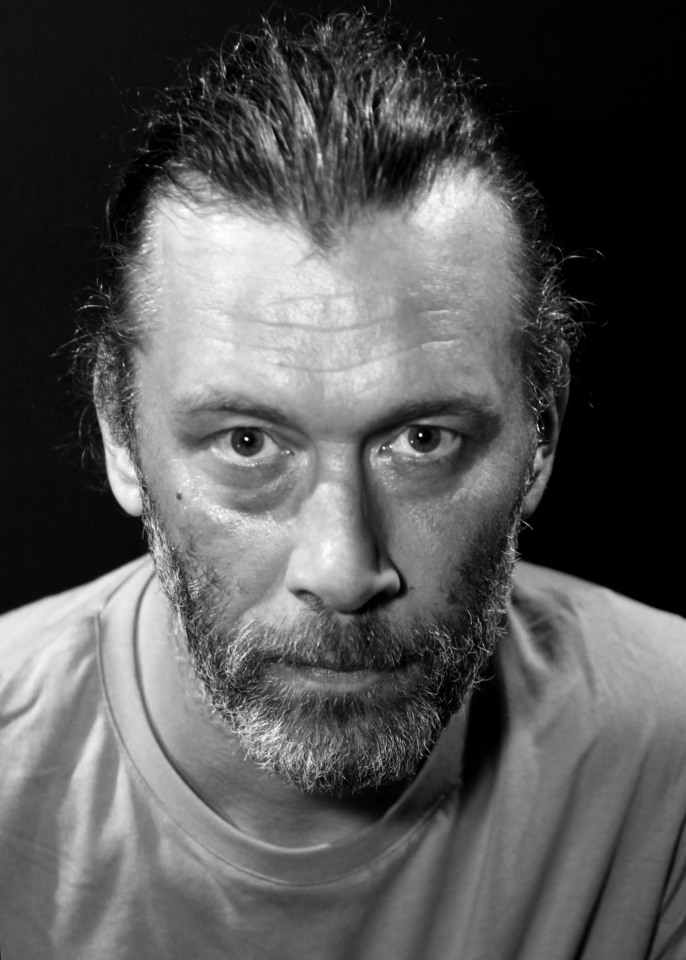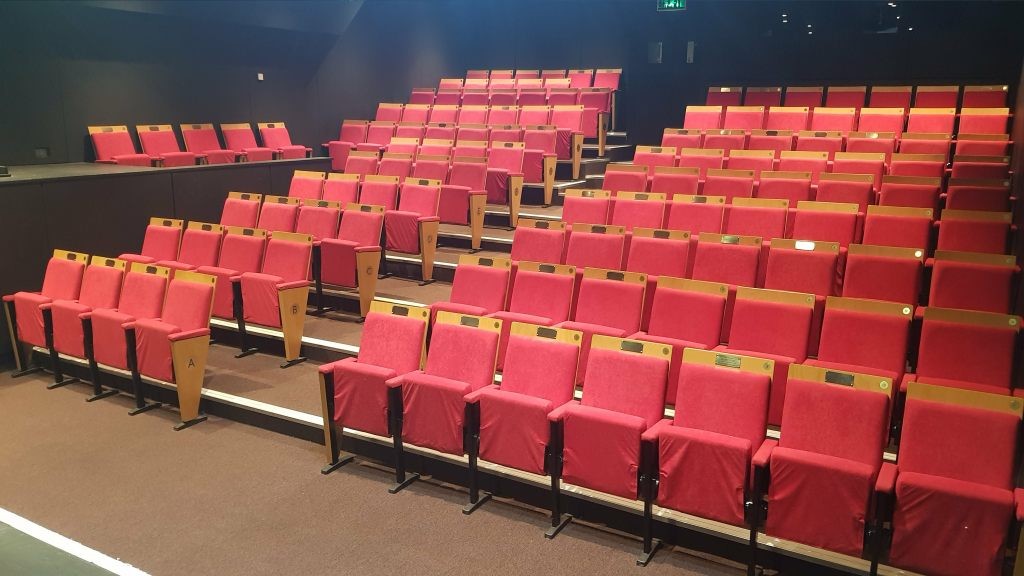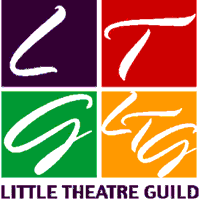- Theatre: Accidental Death of An Anarchist
- Theatre: Ein Komisches Talent
- Theatre: Gaslight®
- Theatre: Hansard
- Theatre: Home, I'm Darling
- Theatre: How to Succeed in Business...
- Theatre: I Love You, You're Perfect, Now Change
- Theatre: The Cat's Meow
- Theatre: The Crucible
- Theatre: The Duchess of Malfi
- Theatre: The Glad Game
- Theatre: The Last Noel
- Theatre: The Revlon Girl
- Theatre: Things I Know To Be True
- Theatre: Uncle Vanya
- Auditions: Audition for Youth Theatre
- Auditions: Audition for Things I Know To Be True
- Auditions: Audition for The Glad Game
- Auditions: Audition For Uncle Vanya
- Auditions: Audition for Hansard
- Auditions: Audition for The Duchess of Malfi
- Auditions: Audition for Accidental Death of An Anarchist
- Auditions: Audition for How To Succeed In Business...
- Lunchtime Theatre: Borne out with whalebone
- Lunchtime Theatre: Animating the Inanimate
- Lunchtime Theatre: Discussion of a local production
- Lunchtime Theatre: Lunchtime Christmas
- Lunchtime Theatre: From the theatres to the stars
- Lunchtime Theatre: Lunchtime Theatre
- Lunchtime Theatre: Lunchtime Theatre
- Lunchtime Theatre: Lunchtime Theatre
- Lunchtime Theatre: Lunchtime Theatre
- Lunchtime Theatre: Lunchtime Theatre
- Lunchtime Theatre: Lunchtime Theatre
- Open Evenings: Open Day
- Open Evenings: Open Day
- Socials: Christmas Party
- Socials: Murder Mystery
- Socials: Quiz Night
- News: LMT at The Fringe!
- News: NANDA Awards 2025
- News: Youth Theatre Shines at NANDA Youth Fest...
- News: 2025/26 Season
- News: Under the Limelight: Backstage at the Vo...
- News: Plea for century-old theatre after drop ...
- News: 100-year-old Nottingham theatre ... laun...
- News: Lydia Marchant Came to Visit
- News: NANDA Awards 2024
- News: Discount Car Parking Offer
- News: 2024/25 Season
- News: Emmy win for our patron Matthew Macfadye...
- News: Golden Globe win for our patron Matthew ...
- News: Discount Food Offer
- News: NANDA Awards 2023
- News: 2023/24 Season
- News: Discount Car Parking Offer
- News: Lace Market Youth Theatre on the town...
- News: NANDA Awards 2022
- News: The Queen’s Award for Voluntary Service
- News: 2022/23 Season
- News: Discount Ticket Offer
- News: Covid Precautions
- News: 2021/22 Season
- News: A Virtual Vanya
- News: Nottingham Playhouse Home Grown Bursary
- News: NANDA Awards 2020
- News: Coronavirus (COVID-19): Season Cancellat...
- News: 2020/21 Season
- News: Coronavirus (COVID-19): Season Postponem...
- News: Sad and Amazingly Funny
- News: Absurd but relevant
- News: Where Are They Now?
- News: Foyer Refurbishment
- News: NANDA Awards 2019
- News: Youth Theatre win at NANDA!
- News: Hannah and Hanna on tour
- News: 2019/20 Season
- News: Adam Penford Visit
- News: The Big Wardrobe Move - Part 1
- News: Lace Market Theatre On Tour
- News: Henry, 14, shows the desire to step in a...
- News: New Wardrobe Premises
- News: Auditorium Refurbishment 2018
- News: NANDA Awards 2018
- News: Auditorium Refurbishment
- News: Remember when women were seen as 'little...
- News: Nanda Youth Festival
- News: 2018/19 Season
- News: World War II play loved by Churchill...
- News: Modern take on Charles Dickens' horror s...
- News: Oscar Wilde's An Ideal Husband at the La...
- News: Shocking true story of last woman to be ...
- News: Alan Bennett classic The History Boys to...
- News: Pride and Prejudice at the Playhouse?
- News: Launch of New Bar
- News: Is Guys and Dolls the best ever Musical?
- News: Success at NANDA
- News: LMT to Host World Premiere of New Englis...
- News: 20th Century masterpiece...
- News: 2017/18 Season
- News: Terry Pratchett's Carpe Jugulum to be pe...
- News: Comedy classic The Ladykillers will be s...
- News: West End hit that became Meryl Streep fi...
- News: Nottingham theatre kicks off 2017 with m...
- News: An alternative to panto...
- News: The Brontë sisters were chick-lit pionee...
- News: The Weirdest Title of Any Show You'll Se...
- News: Telling Tales...
- News: Love & Death
- News: Exhibition in the Studio
- News: Latest Sound Upgrades
- News: Success at NANDA
- News: Success at NANDA Youth Festival
- News: Steve Parry: A Tribute
- News: Lace Market Theatre on Tour 2016
- News: James Dean naked and 'lots of pretty lad...
- News: 2016/17 Season
- News: 2000 Facebook Likes!
- News: Art Exhibition During "Beautiful Th...
- News: Noel Coward comedy is Lace Market Theatr...
- News: Art Exhibition During "Present Laug...
- News: Discount Food Offer
- News: Art Exhibition During "The Pitmen P...
- News: New Roof!
- News: In August the Lace Market Theatre Goes D...
- News: Good Deeds Notts: A stroke of luck as Jo...
- News: Happy Jack: On Tour
- News: Success at NANDA!
- News: Nudity Features in Alan Bennett-style Co...
- News: Success at the NANDA Youth Festival
- News: Art Exhibition During "Dead Ringer&...
- News: Poltical Comedy Play is Anecdote to Gene...
- News: 2015/16 Season
- News: Bertolt Brecht Classic at Lace Market Th...
- News: Theatre preview: Bedroom Farce at Lace M...
- News: Lace Market Theatre stages the tale of a...
- News: Lace Market Theatre's One Act Play will ...
- News: It's a White Christmas at Lace Market Th...
- News: Art Exhibition During White Christmas
- News: Donation to Nottinghamshire NUM Ex and R...
- News: Lace Market Theatre tackles John Godber ...
- News: Darkly funny play at Lace Market Theatre...
- News: Lace Market Theatre commemorates WWI wit...
- News: The World of Professional Theatre has Re...
- News: Private Peaceful Collection
- News: Discount Food Offer
- News: Possibly the best set ever!!! The back s...
- News: LMT's comic, contemporary vision of rura...
- News: The horror of WW1 told in Lace Market Th...
- News: Success at the NANDA Youth Festival 2014
- News: NANDA Youth Festival
- News: VisitEngland Tourism Superstar Awards 20...
- News: 1000 Facebook Likes!
- News: The Return of Open Mic Night
- News: Art Exhibition by Neil Duckmanton
- News: Online Booking Problems?
- News: White Christmas Early Bird Offer
- News: New Website!
- News: Anne Boleyn Opens to Rave Reviews
- News: Nottingham Post interview Gordon parsons
- News: Murder Mystery Night is Big Success
- News: Nottingham Post interview Graeme Jenning...
- News: RSC Open Stages
- News: Nottingham Post Interviews Max Bromley
- News: Discount Food Offer
- News: Costume Commissioned by the Courtald Gal...
...of Chekhov's Ivanov
The Lace Market Theatre in Nottingham is to present a world premiere of a new English translation of Russian playwright Anton Chekhov's Ivanov. Director Cynthia Marsh, who also adapted and translated the classic, explains why.
Why did you decide to translate Chekhov's Ivanov yourself rather than use an existing version of the play?
I was lucky enough to have the chance to learn Russian, and subsequently spent a lifetime exploring and teaching Russian history, culture and language at the University of Nottingham. I have both translated and directed the same Russian play before at the Lace Market, and found working on both angles a richly rewarding experience.
When well-known British dramatists adapt a Russian play, they usually have to rely on the services of a literal translator. In this way the experience is often second hand. Chekhov is a comic writer and this was his first full length play. I wanted to find the comedy not always evident in British productions. And beyond that the emotional rawness that the young 27-year old Chekhov drew from himself and the popular melodrama of his day. I am also well placed to explain those historical and cultural points in Chekhov's plays that some people find difficult or alien. When these aspects are suppressed, as they often are in British productions, a repetitively stagnant view of Chekhov is the one we find.
What challenges did you face in doing this?
The experience was hugely enjoyable, if hard work. The challenges and pleasures are as much as anything in finding a style of English which can be performed with ease. I think the translation should reflect the original, but also speak to today's audiences. One of the great positives of producing new translations is that they provide a continual updating of the original language to modern standards. In Russian, the play must always remain, language-wise, somewhere in the late 1880s.
Another challenge has come in the directing. Performers regard me as the translator as an owner of the text. They think it can be changed at will, and sometimes whim. So trying to keep the text as it is a recurrent rehearsal game!
Is Ivanov a comic Russian Hamlet?
In his 20s, Chekhov was already a skilled writer and natural comic. He had quickly acquired a huge reputation for his comic sketches and short stories, published in Moscow's newspapers and journals. His instincts drew him to make his more weighty and topical points through a comic and entertaining treatment. So. yes, the play Ivanov is definitely a comedy.
The character Ivanov is close to Hamlet, though I would not say the plays themselves are very similar. There are a number of reasons for this character closeness. First, since the 18th c. Shakespeare is probably the most frequently performed translated dramatist in Russia. Just like audiences here get an updated Chekhov in English, so Russian audiences are given a translated Shakespeare accessible and contemporary to them.
Second, the play Hamlet and the character penetrated Russian literary writing deeply, especially in the 19th century. Ivanov refers to himself as Hamlet, for his indecision, his doubts and his self-disgust. He also mocks himself for thinking he might be a Hamlet. He jokes at the expense of those around him sometimes comically sometimes bitterly, and in that he is close to Hamlet. In the end, Ivanov decides his own fate.
Apart from its interest as an early Chekhov what has this play got to offer a modern audience?
You will see an unexpectedly strong comic show with some dark twists. It whirls round Ivanov himself. He has lost his way and tries, with a measure of desperation bordering on the absurd, to scramble out of the hole into which he has dug himself. The question is, will he succeed?
In Russia, certainties were collapsing as wealth shifted across the social classes. Politics were introspective, laced with scepticism about Europe. There was censorship that was both external and self-imposed (Chekhov's comedy helped him avoid sounding too directly abrasive). Suspicion of minorities, both elitist and ethnic, was frequent, and hatred of moneyed professionals, such as lawyers, bankers, accountants, doctors and traders, was rife. Recognise some of this?
Yes, Chekhov liked to joke and entertain, but he also pointed to the desperate solutions that victims sometimes, tragically, seek.
Read the original article here.












